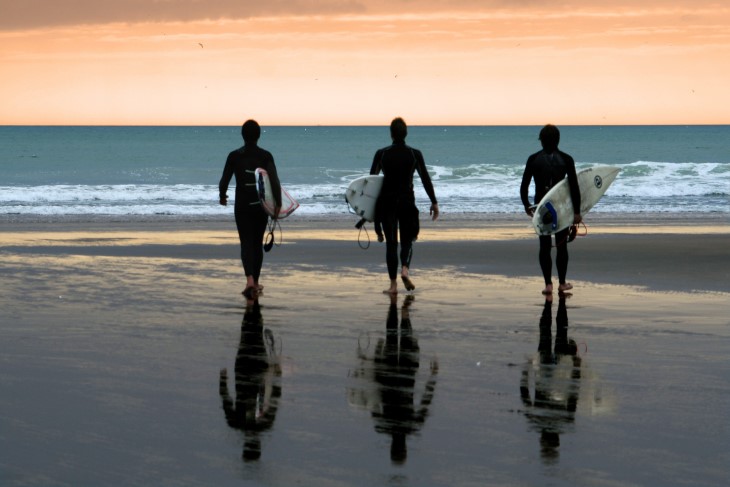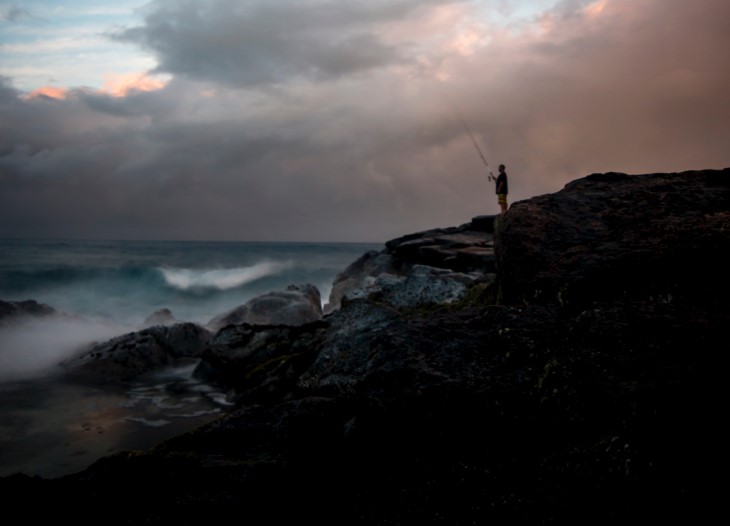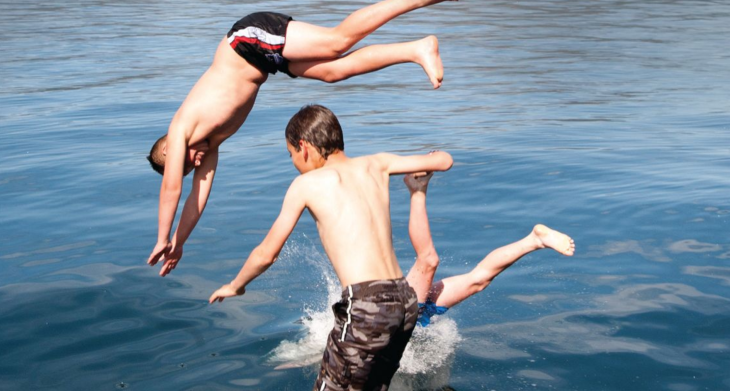‘Have a Hmmm’ around the water this summer

With our partners Water Safety NZ, we’re laying down a wero (challenge) to all New Zealanders to ‘Have a Hmmm’ to avoid drownings and injuries around the water this summer.
Before you hit the water this summer, take a moment to stop and consider the risks.
That’s the message from ACC and Water Safety New Zealand (WSNZ) for the holiday season and beyond. WSNZ projections show the nation is expected to experience another devastating year for preventable drownings.
The WSNZ predictive modelling initially forecasted 100 lives would be lost in 2023 but a recent report shows this forecasted number has decreased to 95 lives.
“It’s still a significant number, but it shows progress,” Water Safety NZ chief executive Daniel Gerrard says.
“This reduction hopefully reflects that people are having a think about their behaviour. This, along with the collective effort and increased awareness of water safety messages in our communities, might be getting through.”
Daniel says all New Zealanders must remain vigilant and committed to further reducing these numbers over the summer period.
Last year was the worst for drownings in a decade, with 94 people losing their lives.
“A drowning is a devastating event for any whānau and community,” Daniel says.
“These incidents are preventable – if you stop and take time to assess the risks. Collectively, we all have to make better decisions around water this summer.”

New year brings highest water-injury risk
Drownings aren’t the only risk in and around the water though.
In 2022, we accepted 19,455 water-related injury claims at a cost of $59 million to help people recover. That’s around 53 people every day getting hurt from activities like swimming, fishing or surfing.
This was the highest number of water-related injuries since 2019 and the highest cost in the past five years.
In 2022, Auckland (5,807) had the highest number of water-related injuries, ahead of Waikato (2,588), Bay of Plenty (2,114) and Canterbury (1,854).
Every year, January is the month with the highest number of water-related injuries – an average of 3,702 over the past three years. That’s around 120 people per day getting hurt in the water.

Laying down a challenge to stay safe
ACC Injury Prevention Leader James Whitaker says summer is one of the best times of the year. He encourages everyone to get out and enjoy the sun.
"Whether it’s getting out with their mates for a surf, time with the whānau by the beach or fishing at their favourite spot on the river, we’re here to support people who need it, and we’ll do everything we can to help people recover,” he says.
“But it’s better for everyone when fewer people are injured in the first place. So we’re laying down a wero (challenge) to all New Zealanders to ‘Have a Hmmm’.
“Think about the risks relating to the activity you’re about to do. If you think about the best ways to avoid those risks, you can do things safely and keep doing what you love.”

How we’re getting hurt in the water
The top five ways New Zealanders hurt themselves in the water in 2022 were surfing (6,249), swimming (5,566), swimming at a pool (1,291), waterskiing (1,180) and boating (857).
Daniel says most people underestimate the risks and overestimate their ability.
“Most drownings and water-related injuries are preventable if we all take a moment to consider the risks,” he says.
“It’s imperative for every New Zealander to approach the water with respect. It’s up to each of us to take responsibility and make sure our loved ones get home safe.”

Water Skills for Life
ACC partners with Water Safety NZ to keep children safe in and around water. We’re the naming rights sponsor of the ACC Water Skills for Life programme.
Daniel says the programme teaches kids how to have fun and keep themselves safe in and around water.
“Knowing how to swim is not enough, Water Skills for Life teaches other lifelong water safety and survival skills,” he says.
“While we still teach the fundamentals of swimming, we also want to address the fundamentals of being safe around the water.”
That’s skills like learning how to float on your back, on your front, getting into a huddle position if you’re with a group, making sure you’re wearing a life jacket on a boat and knowing how to use one in the water, learning how to scull and tread water.
“We teach all of that in Water Skills for Life,” Daniel says.
“They’re critical skills that could save your child’s life.”

Water Safety Code
- Be prepared
- Watch out for yourself and others
- Be aware of the dangers
- Know your limits
Boating Safety Code
- Wear your lifejacket
- Take two waterproof ways to call for help
- Check the marine weather forecast
- Avoid alcohol
- Be a responsible skipper




